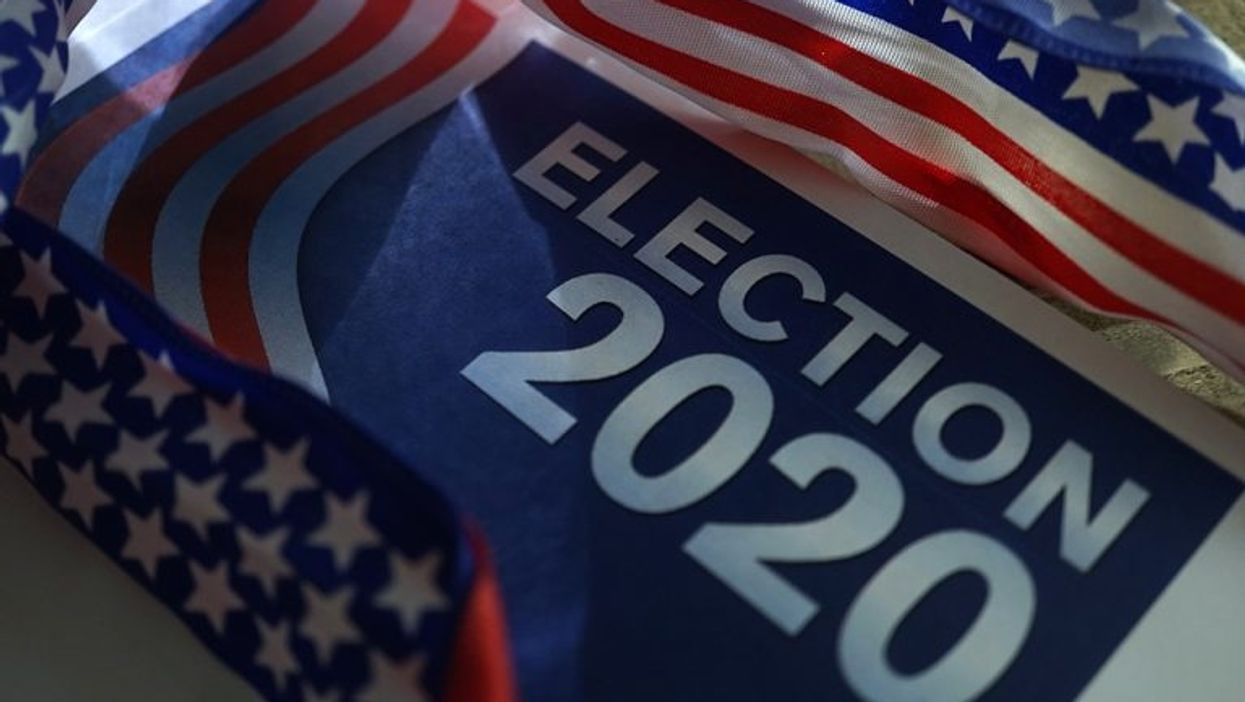
At the 2004 Democratic National Convention, a little-known state senator from Illinois electrified the crowd with a speech proclaiming our fundamental unity. "There's not a liberal America and a conservative America; there's the United States of America," Barack Obama declared.
Four years later, he campaigned for president promising that we could overcome our differences. His election offered evidence that he was right. His presidency, however, proved that he was wrong.
Obama was a cautious centrist, but conservatives vilified him as a foreign-born socialist who hated white people. When Obama finished his second term, his approval rating among Republicans was just 14 percent — compared with 39 percent for Bill Clinton when he left. Obama gave way to Donald Trump, the Niagara Falls of divisiveness.
Under him, our ideological, cultural and racial cleavages have gotten deeper and more unbridgeable. The overlooked question is: Can the United States survive this election?
In his new book, Break It Up: Secession, Division, and the Secret History of America's Imperfect Union, leftist journalist Richard Kreitner expresses doubt that the country can hold together, or should. As he notes, English colonists came here to separate themselves from their rulers. Our revolution amounted to the colonies' secession from the British Empire.
The concept of splitting off is as American as the Fourth of July. The high point of separation sentiment came after Abraham Lincoln's election in 1860, resulting in the Civil War. But New England states contemplated leaving over the War of 1812. And though the South was forced to stay, it fiercely resisted federal interference in race relations for a century — achieving an autonomy just short of independence.
In 1970, the Russian dissident Andrei Amalrik wrote a book titled, Will the Soviet Union Survive Until 1984? At the time, the idea of a giant superpower disintegrating sounded like a fantasy. But it eventually came true.
Countries like Czechoslovakia and Yugoslavia have also broken apart. Britain is leaving the European Union, and Scotland could push to leave Britain. It would be folly to think the United States is immune to these forces. In fact, Kreitner writes, "disunion has been one of our only truly national ideas."
For decades, the threat posed by the Soviets served to unify us. The 9/11 attacks did the same. But today, the need to stand together for self-defense is less compelling.
Some of Obama's foes talked about seeking a political divorce. In 2009, Texas Gov. Rick Perry said: "We've got a great union. There is absolutely no reason to dissolve it. But if Washington continues to thumb their nose at the American people, you know, who knows what may come out of that?" After Obama was reelected, a Huffington Post poll found that 22 percent of Americans — and 43 percent of Republicans — would be inclined to support their own state's secession.
That sort of talk is still around, but it's moved leftward and westward. After Trump's 2016 victory, a poll found that one in three Californians supported what is known as "Calexit." As if to encourage the idea the Golden State is alien territory, Trump has attacked it at every opportunity. He conducts himself as though he were the president only of the red states.
If Joe Biden wins, the urge to flee will subside in California. But what about GOP states? The Texas secessionist movement would get a big boost, which would stimulate similar efforts in other Southern states. If Trump voters saw the election as fraudulent, some of his supporters would see extreme measures as obligatory.
Who can forget the sight of armed protesters entering the Michigan capitol to protest the Democratic governor's stay-at-home order? Trump stoked the flames last year, tweeting that if he were impeached and removed, "it will cause a Civil War like fracture in this Nation from which our Country will never heal."
But there is also the possibility that Biden will lose — to the despair of Californians and inhabitants of other deep blue states. The protests and violence that have occurred in recent months would undoubtedly expand. Trump's reelection would be taken as the final proof that those who reject him have nothing in common with much of America.
The bonds that hold Americans together have frayed, and what happens on Nov. 3 may do additional damage. No nation lasts forever, and ours won't be the first. This election won't be the end of the United States. But it could be the beginning of the end.
Steve Chapman blogs at http://www.chicagotribune.com/news/opinion/chapman. Follow him on Twitter @SteveChapman13 or at https://www.facebook.com/stevechapman13. To find out more about Steve Chapman and read features by other Creators Syndicate writers and cartoonists, visit the Creators Syndicate website at www.creators.com.
- Far-Right Wants To Act Out Its Civil War Fantasies Now - National ... ›
- Evangelist Graham Echoes Trump's 'Civil War' Warning - National ... ›
- 'Boogaloo Boi' Seeking Civil War Is Arrested For Deadly Attack On ... ›
- Enraged By Supreme Court Defeat, Texas GOP Chair Suggests Secession - National Memo ›
- Republicans Talk ’Secession," But Who Would That Hurt? ›








Trump Cabinet Nominee Withdraws Over (Sane) January 6 Comments